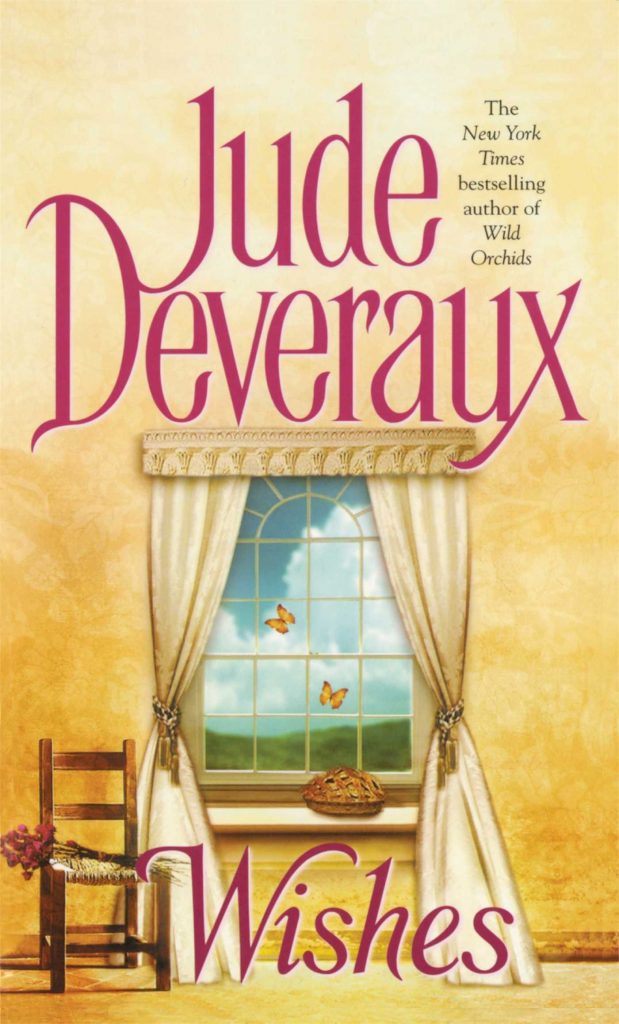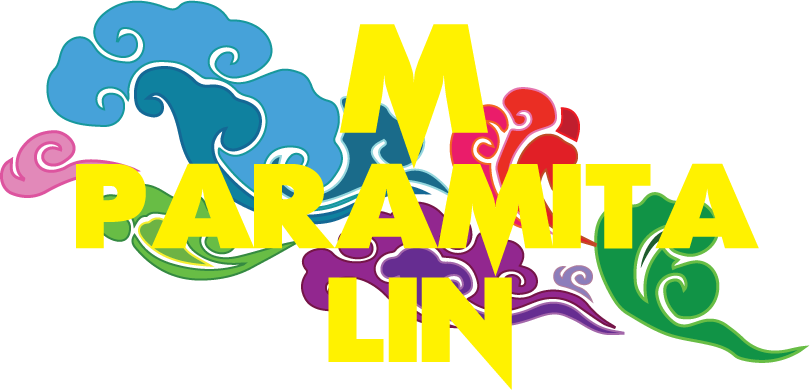
Doretta and I were laughing about Ayn Rand when I mentioned to her that when I was in university, my Feminism 101 professor, an old hippie, asked the class, “Who’s read The Fountainhead here?”
I raised my hand, and the professor gasped in shock and said, “They still print that shit?”
At the time, I couldn’t explain the circumstances of how I came to read The Fountainhead, but I figure that this is a good time as any to write about it. I went to convent school, and like all good sexually repressed schoolgirls, we established an active trade in the kind of historical romance paperbacks that have really racy sex scenes.
To facilitate the enjoyment of these books, some of the kinder and more considerate readers would mark all the sexy parts with Post-Its or turn down the corners of the page for our reference.
Some books were so good that they bristled with more Post-It notes than a legal document, and some were so boring that there wasn’t a single corner with even a slight crease. The Fountainhead was one of the latter books.
I can only imagine that one of the girls who bought it thought the title sounded promising (it kind of sounds like maidenhead), only to give up on it in disgust and send it through the sexy book circulation just in case someone found something promising in it. I read it from cover to cover, thinking, “WHERE IS THE GOOD STUFF?” There were sex scenes (and one rape one), but they were written in a way that made me uneasy, instead of the over-the-top, fun “she gasped at his throbbing manhood” ones I was used to. And so, thanks to its grimly depressing sex scenes, The Fountainhead circulated only a few more times before it was eventually dropped.
And so, yes, I read The Fountainhead to look for racy sex scenes.
I haven’t read a historical romance in a long time, but the plots of some of the ones I read in the early 1990s are forever burned in my head along with “manroot”–I’m sure I don’t need to explain which body part this is a euphemism for. One of the books I’m working on (yes, I’ve got a lot of stories I need to finish, don’t rush me) is a contemporary romantic comedy set in Hong Kong, but unfortunately, I think it will be rather low on Post-Its because I’m too embarrassed to write sex scenes.
What’s really crazy, though, is that after all of these years, I still remember some of the historical romances I read all those decades ago. The summaries below are my memories of what happens in the books, and while I did look them up for the names, I didn’t read them again. Still, I’m pretty sure that my summaries are close to accurate.

This book has a fairy ghost godmother with implants, Berni, and a Cinderella-like protagonist, Nellie, who is slightly chubby. Nellie is kind of pathetic and a doormat to her mean, bossy, pretty sister, but Jace (of course he’s named Jace) falls in love with her because she’s such a martyr, despite her extra fifteen or so pounds. In fact, he even likes her chub because he gets angry when Berni causes Nellie to lose weight (even as she compulsively eats to calm her feelings down), saying that he loves her for her REAL SELF, not her appearance. Luckily, she becomes beautiful when she slims down, Jace reconciles himself to marrying such a gorgeous creature despite his disgust, and Berni gets to go to heaven. Kind of low on Post-Its.
Johanna Lindsey, Prisoner of My Desire
For some reason, a lot of people seem to remember reading this book, maybe because it had a high Post-It rating. Most historical romances have a scoundrel who practically rapes a woman (who enjoys it), but this one turns the trope on its head by having the woman rape the man. A widow, Rowena Belleme, must produce an heir in order to keep her status so a kind of assholish (I’m not sure I have to mention this because they generally are) but extremely handsome knight called Warwick deChaville is kidnapped and chained up in the dungeon so she can impale her maidenhood on his sword. What really impressed itself on my mind was how the first couple of times, Rowena couldn’t successfully ravish Warwick because she didn’t know much about sex, and she tried to stuff his soft manhood into her womanhood.
Later on, she finds out that she has to get him excited, and despite his resistance, she manages to have her way with him over and over. I also remember a scene where she’s talking to him about his manhood right before they get to know each other biblically, and she’s asking him facts about it.
Title and author unknown
I’m sure this story will be familiar to some for the high Post-It count. The story is set during the Plantagenet reign, and the heroine, Philippa (I think?) runs away from her home to avoid an arranged marriage and ends up at the castle of an earl (I think?) who is a widower with a young son and is broke. Philippa ends up being his captive and does a bunch of servant work, and in the end, they find out that she’s the illegitimate daughter of the king (either Richard Lionheart or Henry II). I remember details like: Philippa’s hair is different shades of blonde instead of the Plantagenet gold; some crazy dude tries to kidnap and rape Philippa; the broke earl wants to ravish Philippa and they sleep together naked in the same bed, he even spanks her while she’s naked, but he can’t mess with her maidenhood so he takes out his sexual frustrations on the castle serving wench.
He also strips her naked at least a few times in front of his men, and once, he even bathes with her in the middle of their castle or fort. Yes, what would be considered horrific abuse in Game of Thrones is just part of courtship in this book. In the end, he marries her even though he doesn’t want to marry the daughter of a king. They also make love outdoors in the rain at some point even though Philippa has a broken arm.
The book is also part of a series, but I can’t remember what it is, except the first book is about a fragile, tiny heroine who tames a hulking knight or something.
Title and author unknown
This is the book whose Google search keywords will probably put me on a watch list: “mermaid historical romance twin brothers”. Now that I think about it, I think the heroine is only a half-mermaid, it’s her mother who’s a mermaid and is so beautiful that no man can look on her and not fall in love. The hero and anti-hero are twin brothers who are princes, and I believe that the first chapter is about the evil twin having sex with a castle prostitute who finds his size too difficult to handle. At some point, the evil twin mind controls the mermaid. He doesn’t rape her, but he molests her if I’m not mistaken, and she enjoys it. The good twin, on the other hand, courts her like a decent guy.
I’m under the impression that the book was a little off the beaten path for the author. I also have a vague idea that the Post-It count was quite low.
Although I’ve read a ton of historical romances, these ones stand out in my mind for whatever reason. It’s been kind of funny reminiscing about them, but it’s sobering to think that these books were my (and I’m sure many other girls’) introduction to sexuality and relationships, so it’s no wonder that so many women grow up with a warped sense of both.
I’m at a loss to write about this in many ways. I realize that the idea of aggressive and forceful seduction has been around for hundreds of years, and I’m not saying that there is something wrong with women having rape fantasies, but those fantasies are consensual at core. But in real life, to rape someone and then later have them enjoying the rape doesn’t make it retroactively consensual.
Some of these books are genuinely fun to read, and it’s not so much that I’m criticizing the books as I am criticizing the larger belief system that they inadvertently represent: as sassy and intelligent as a woman can be, she still needs to be told by a man what she likes and what she should accept, especially when it comes to sex and male behaviour.
I just can’t help seeing this as a reflection of the things I’ve dealt with in everyday life. I’ve had my preferences questioned by men simply because we disagree. It’s one thing to tease me for being a freak for not liking chocolate, I don’t mind that. But I’ve had an acquaintance force a piece of chocolate inside my mouth because he wouldn’t accept that I don’t share his clearly superior taste.
Like many girls and women, I’ve also been expected to tolerate harassment. Men have hit on me by insulting me or trying to be physically aggressive. And I really can’t help but think of how I just shrugged it off or accepted it when I was younger. I don’t necessarily blame the books I read–as I said, they’re a symptom, but not the disease itself–but they did help normalize this thinking. Simone de Beauvoir was right: women are complicit in their own oppression.
Again, because I don’t want people to misunderstand: it’s not the content of the books per se but the fact that they’re presented as normal. American Psycho is full of graphic descriptions of rape, torture, and murder, but Bret Easton Ellis is hardly normalizing any of Patrick Bateman’s behaviour.
In Gift of Fear, violence expert Gavin de Becker talks about how pop culture supports the idea that persistence and not taking “no” for an answer as part of romantic courtship:
This Hollywood formula could be called Boy Wants Girl, Girl Doesn’t Want Boy, Boy Harasses Girl, Boy Gets Girl. Many movies teach that if you just stay with it, even if you offend her, even if she says she wants nothing to do with you, even if you’ve treated her like trash (and sometimes because you’ve treated her like trash), you’ll get the girl.
But here’s the thing: “persistence only proves persistence–it does not prove love.” He also points out that women have been conditioned to have a hard time saying “No.” And you know what’s really disturbing? A lot of the situations of stalking, harassment, and rape in Gift of Fear are really similar to the plots and events of many of these bodice-ripper romances.
I haven’t read historical romances since high school, and I’m sure there are more books out there who question and diverge from the “rape as seduction” trope. I don’t wish to condemn this genre or look down on it simply because women enjoy it, and that’s another weird complexity to this entire situation. Within the books, women can’t be trusted to know what they like, and in real life, people can’t trust women’s taste either because they must only like crappy stuff.
It’s also extra strange that this genre gets looked down on because if you think about all the shitty action movies or thrillers that men supposedly like, historical romances actually have a lot of similar elements: lots of sex, sassy but ultimately yielding women, and action. In fact, a lot of action films are basically romances, just told from a different point of view. And it’s not a coincidence that you see the same types of protagonists in both action and romance: guys who are scoundrels and rogues, whose charm or power lets them break the rules and do whatever they like.
I’m not saying that these characters or storylines should be banned, and I don’t think people should feel bad for enjoying them. As you can tell, I like a lot of questionable and problematic stuff, myself. But I think it’s not only interesting but important to dissect a lot of what we like because it tells us a lot about ourselves and our environment. It’s especially important for people who create narratives to understand what’s going on because your stories are one of the best ways to provide an alternative.
And if there are any romance writers out there: I’m still waiting for a multiple Post-It-quality book that won’t make me squirm in a bad way. With or without manroots.




